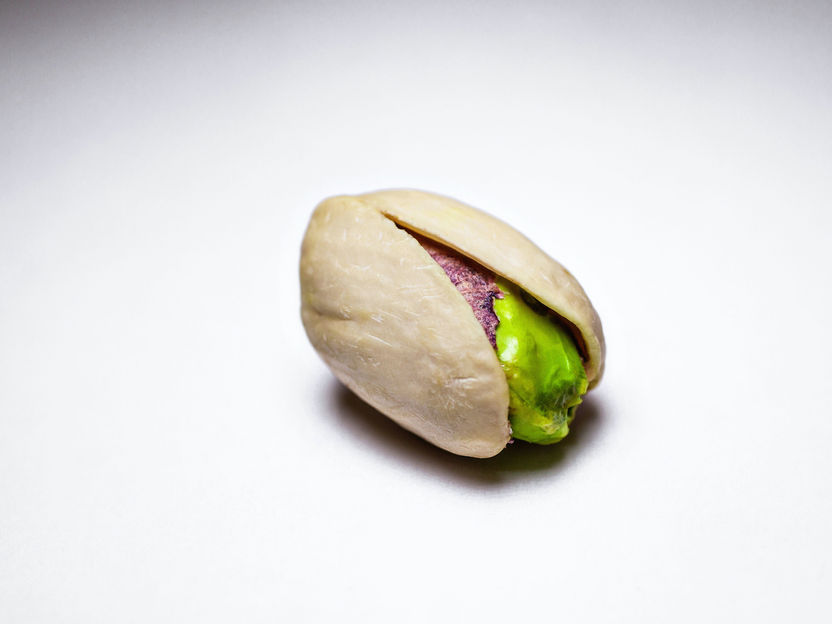Consumption of pistachios is associated with a variety of health benefits
Journal of Nutritional Science publishes study summary on plant-based diets
Advertisement
Regular consumption of pistachios can have great effects on health. This is according to the review of nutritional studies conducted over the last twenty years, now published in the Journal of Nutritional Science[1]. The summary of research results was prepared by scientists from the USA, France and Germany. The studies focused on the properties of nuts and nut fruits in three key areas: "overall health through essential nutrients," "weight regulation," and "blood sugar control."

Journal of Nutritional Science publishes study summary on plant-based diets
American Pistachio Growers
Key points of the study include:
Nutritional value of pistachios: pistachios are a high-quality source of protein and contain 15 micronutrients such as copper, manganese, vitamin B6, thiamin, potassium, phosphorus and chromium.
Weight management: numerous studies suggest that pistachios can help maintain a healthy weight. In one clinical study, it was found that the women who ate pistachios had a significantly higher feeling of fullness after eating than the women who did not eat pistachios. Consequently, the women who ate pistachios also consumed less at the next meal than the women in the control group[2].
Control of blood glucose levels: Published research suggests that eating pistachios may have a positive effect on controlling blood glucose levels. This is especially important during pregnancy, as gestational diabetes affects up to 25 percent of pregnancies worldwide and can have a significant impact on the health of both mother and child. A recent study examined the impact of pistachios on gestational diabetes in Chinese women and found that blood sugar and insulin did not rise after eating pistachios, compared to the control group's carbohydrate-based snack. This is a particularly important finding in cultures where foods made from simple carbohydrates (such as white rice or bread) make up a large part of the diet [3].
Pistachios are a high quality protein source
Studies have shown that U.S.-grown pistachios contain a unique set of nutrients that have numerous health benefits. In March 2020, it was announced that pistachios are considered a high-quality protein, and thus contain all nine essential amino acids needed to maintain health in people 5 years and older. This was determined in an analysis of the protein quality of pistachios by the University of Illinois (Bailey & Stein, 2020). High-quality proteins are usually found in animal products such as meat, fish, poultry, dairy products, and eggs. Plant-based high-quality protein sources include soy, quinoa, and pistachios. Pistachios contain monounsaturated and polyunsaturated fatty acids that reduce the risk of cardiovascular disease, phytochemicals such as lutein and zeaxanthin that protect the eyes from harmful blue light and ultraviolet rays from the sun, and are a good source of fiber and vitamin B6.
American Pistachio Growers is a nonprofit trade association representing more than 865 members who are pistachio growers, processors and industry partners in California, Arizona and New Mexico. For more information, visit AmericanPistachios.com.
-----------------
[1] Journal of Nutrional Science (2021), Vol. 10,e87, page 1-15, Plant based snacking: research and practical applications of pistachios for health benefits.
[2] Bonny Burns-Whitmore, Alison H. Bushnell, Amy H. Towne, Soma Roy, Laura M Hall: Pistachio Consumption at 20% of Energy Does Not Significantly Change Body Composition, Blood Pressure or Blood Lipids but Improves Diet Quality in Free Living, Healthy College-Aged Women, Food & Nutrion Journal, FDNJ-130. (May 2017).
[3] Dr. Ge Sheng: "Effect of pistachio intake on postprandial glycemic response in pregnant women: a randomized, controlled, cross-over study". Department of Clinical Nutrition, Shanghai Jiaotong University Affiliated Sixth People's Hospital, China, 2017.
Note: This article has been translated using a computer system without human intervention. LUMITOS offers these automatic translations to present a wider range of current news. Since this article has been translated with automatic translation, it is possible that it contains errors in vocabulary, syntax or grammar. The original article in German can be found here.






























































